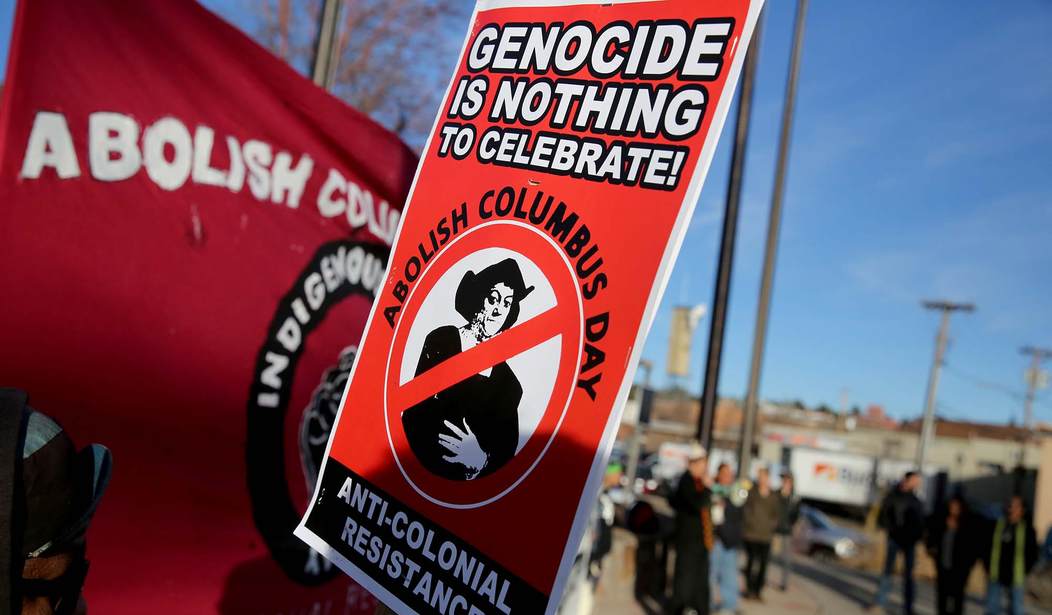State Rep. Anthony Kern said he handed out materials as part of a church group on the Glendale Community College campus for several years without any trouble.
But one year, “all of a sudden they came up with this free speech zone which was way away from the people,” the Republican told the Arizona Capitol Times.
That inspired Kern to introduce House Bill 2615, which broadens campus “free speech zones” to the entire public college campus as opposed to designated areas. It provides students the right to exercise their First Amendment rights without concerns about the time, place and manner unless the public higher education institution can prove the restriction is reasonable and justified.
“The First Amendment right of free speech is a bedrock founding principle of our Republic,” said Gov. Doug Ducey (R) when he signed the legislation this month. “Likewise, part of the university experience is to be able to express diverse views, openly, without fear of retribution or intimidation – and to be exposed to other views and perspectives, even if they aren’t politically correct or popular.”
“These bills protect free speech throughout our college campuses, and also ensure an individual’s right to engage in free speech isn’t shut down by someone else who disagrees with his or her perspective,” Ducey added.
Gov. Ducey also signed House Bill 2548 which could help people like Brittany Mirelez.
The Paradise Valley Community College student filed suit against PVCC after administrators prevented her from recruiting on campus for a Young Americans for Liberty chapter.
Mirelez’s suit claimed that by confining her to a pre-designated free speech zone, her First Amendment rights had been violated.
HB 2548 gives students the right to file lawsuits against colleges and universities, and to receive an award judgment if the court finds that the university or community college has restricted the student’s speech.
Alliance Defending Freedom, a conservative Christian organization that states its purpose is “defending the right to hear and speak the Truth through strategy, training, funding, and litigation,” filed the Mirelez suit.
“Arizona students should have the ability to make sure that government officials are not inappropriately censoring their speech on campus in violation of state law,” ADF Senior Counsel Tyson Langhofer testified during a House Education Committee hearing on HB2548. “Closing this loophole allows students to go to court, when necessary so that government officials can’t get away with ignoring the law.”
Of course, the creation of college and university campus free-speech zones is not exclusive to Arizona.
Greg Lukianoff, the president and CEO of the Foundation for Individual Rights in Education, said roughly one in every six college campuses have free speech zones to which the freedom to speak publicly is restricted.
And while the issue of free speech zones on college campuses hit the mainstream media for the first time in 2016, Lukianoff said it was nothing new to his organization.
“Too often students find their voices silenced, and increasingly their professors are finding themselves in the same boat,” said Lukianoff. “If this year’s ‘worst’ list proves anything, it’s that even tenured faculty members aren’t safe from the censor’s muzzle.”
FIRE published a list of the nation’s ten worst abusers of college student and faculty free speech rights in February 2016, none of which were in Arizona.
Students like Bethany Bowra at Florida Atlantic University are speaking out against free speech zones.
“Enough is enough. We don’t need safe zones, we don’t need to be babied. We actually want to be able to be offended,” she told the Fox Business Network. “We want our right to be offended to be protected on our college campus.”
But others believe that like the classic example of shouting “fire” in a crowded theater not be protected by the First Amendment, there are limits to what can and should be said on a college campus.
“It’s hard to say absolutely that there should be no limits,” Professor Mark Rectanus told Iowa State Daily. “I think speech should be respectful of whoever speaking chooses to address. Some forms of speech are targeted. Some are very open. But I think all speech interactions should try to be respectful of the community they’re in.”
Arizona’s HB 2548 became something more than was intended when an amendment, also related to free speech, was approved in the Senate.
Protesters who blocked Phoenix roads before a Trump campaign rally in March can take credit for inspiring the amendment to HB 2548.
It increases penalties against people who block access to government meetings or hearings, or political campaign rallies like the Trump campaign event.
Arizona Republic columnist E.J. Montini wrote that is where Gov. Ducey’s advocacy of free speech went off the rails.
Montini called the amendment to HB 2548 the “Donald Trump Exception” and argued America has a long tradition of protesters occupying offices, blocking traffic, and refusing to leave lunch counters.
“I understand why some politicians don’t like it,” Montini wrote. “But threatening citizens with heavy fines and jail time isn’t a way to protect free speech. It’s a way to shut people up.”









Join the conversation as a VIP Member